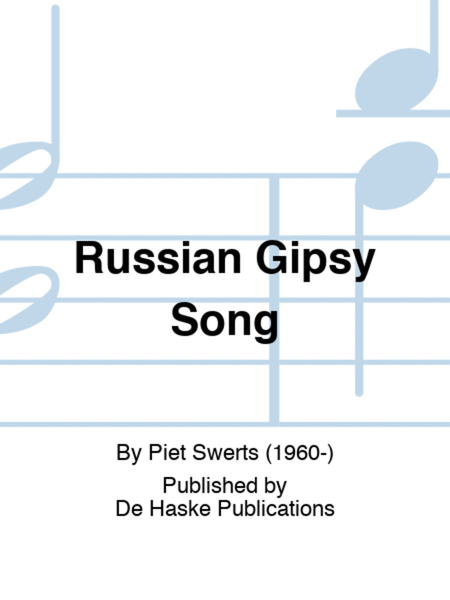Russian Gipsy Song
Dorogoj Dlinnojn
-
Ships in 2 to 3 weeks
Details
Description
SKU: BT.DHP-1053775-010
Dorogoj Dlinnojn. Composed by Piet Swerts. Applause Series. Set (Score & Parts). Composed 2005. De Haske Publications #DHP 1053775-010. Published by De Haske Publications (BT.DHP-1053775-010).English-German-French-Dutch.
The origin of the song Piet Swerts arranged for concert band in Russian Gipsy Song probably lies with Russian gypsies, who know it under the title Dorogoj Dlinnojn and who ardently consider it their mental property.The melody of this Russian folk song is better known under the title Those Were the Days My Friend, the song that singer Mary Hopkins made famous in 1968. Within a year after she had issued this song, well over five million records of it had been sold. There are also versions in French (Les temps des fleurs), Spaans (Qué tiempo tan feliz), Italian (Quelli erano giorni), and German (An jenem Tag) of this song full of nostalgia about the “good old days.”
Diese Melodie stammt vermutlich von russischen Roma und Sinti und heißt ursprünglich Dorogoj Dlinnojn. Bei uns ist das Lied besser bekannt als Those Were the Days My Friend von Mary Hopkins. Von diesem nostalgischen Lied über "die gute alte Zeit" existieren auch Versionen auf Französisch (Les temps des fleurs), Spanisch (Qué tiempo tan feliz), Italienisch (Quelli erano giorni) und Deutsch (An jenem Tag). So darf die beliebte Melodie auch in Ihrem Repertoire nicht fehlen!
Russian Gipsy Song développe une mélodie traditionnelle attribuée aux Tziganes de Russie. En 1968, cette chanson, connue par la communauté tzigane sous son titre original Dorogoj Dlinnojn, fait le tour du monde sous le titre anglais Those Were the Days My Friend. Interprétée par Mary Hopkins, la chanson se vendra n plus de cinq millions d'exemplaires sur une seule année. Parmi les nombreuses versions de cette chanson nostalgique des jours heureux, on compte également une version franæaise (Le temps des fleurs) interprétée par la légendaire Dalida.

 Share
Share